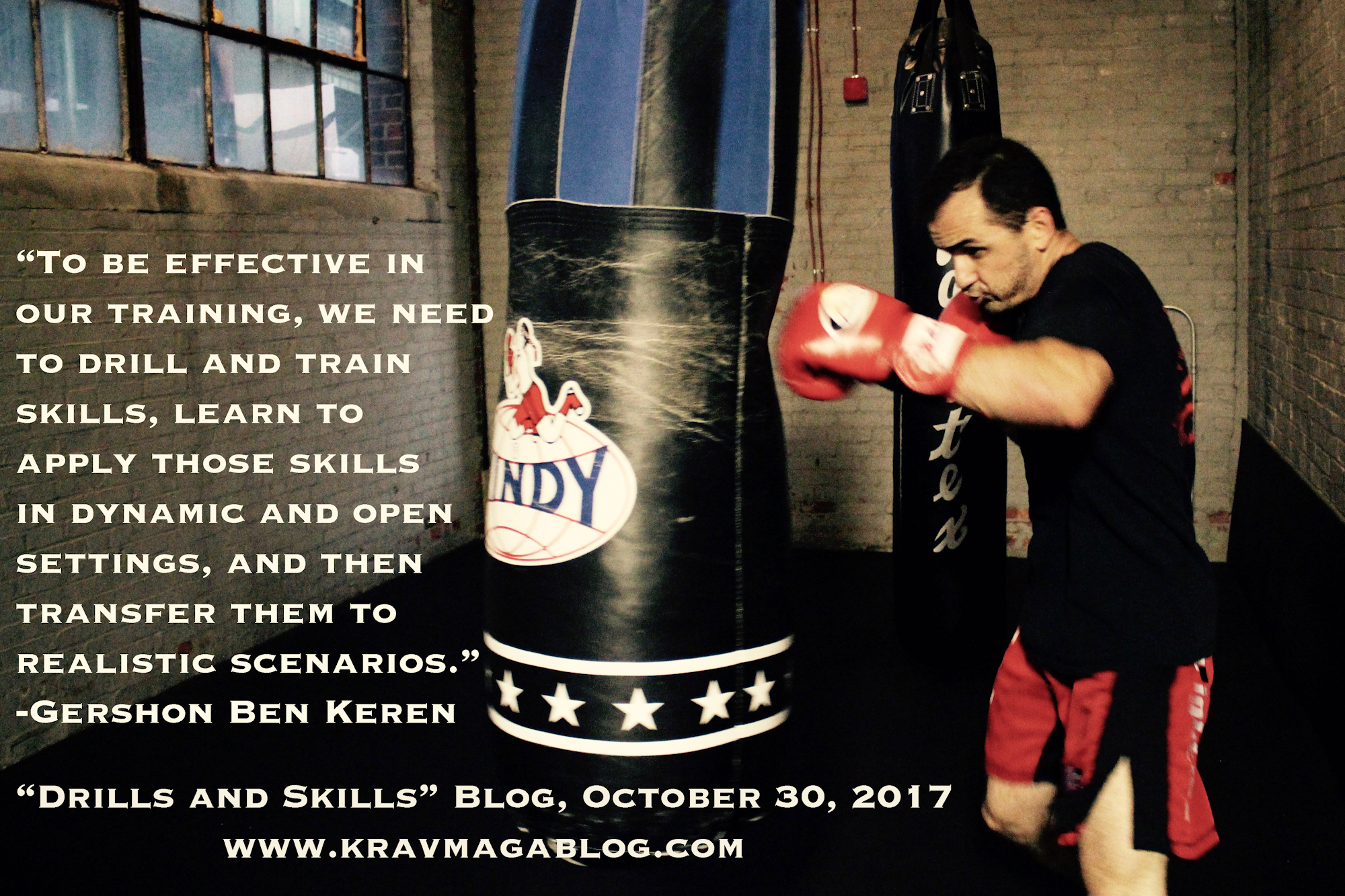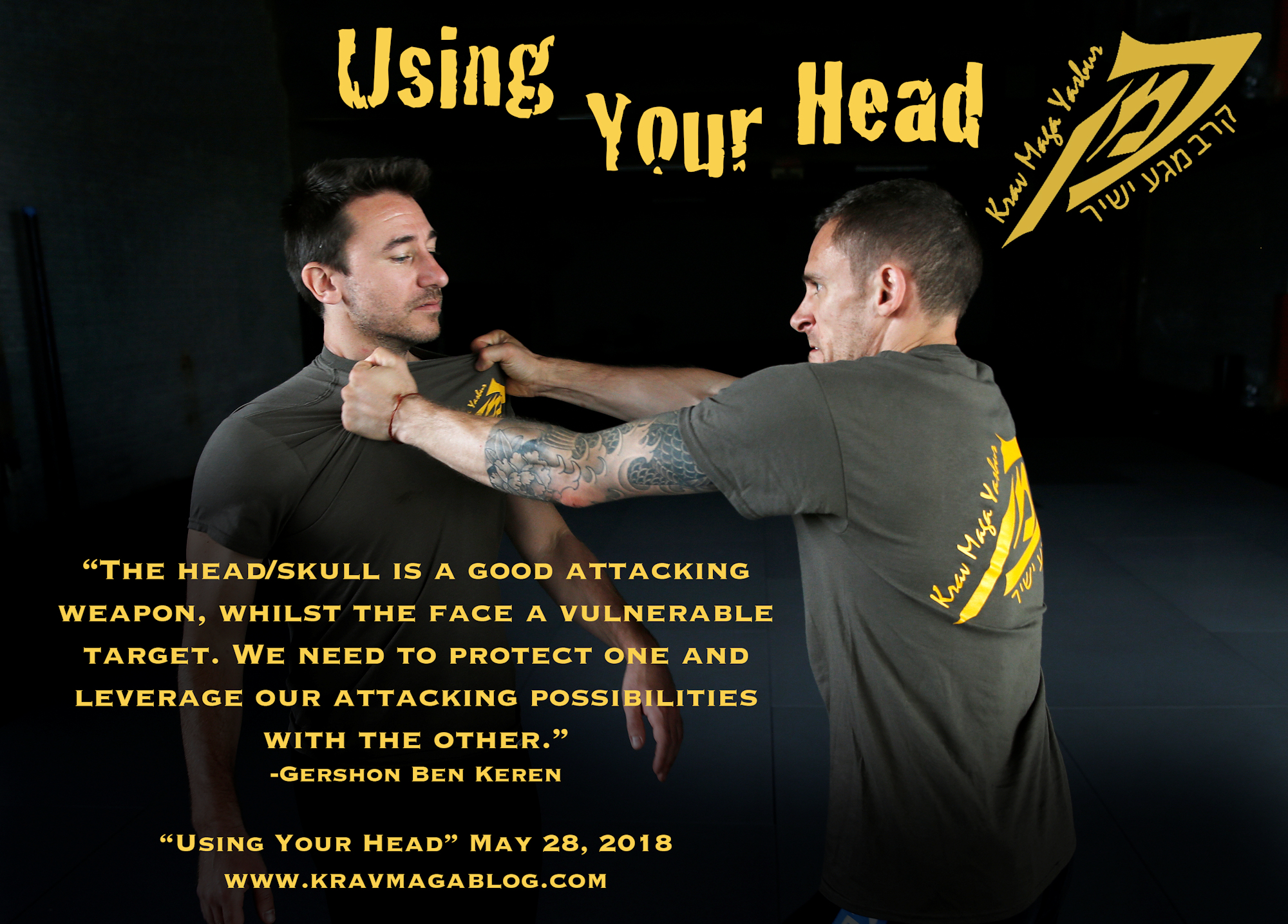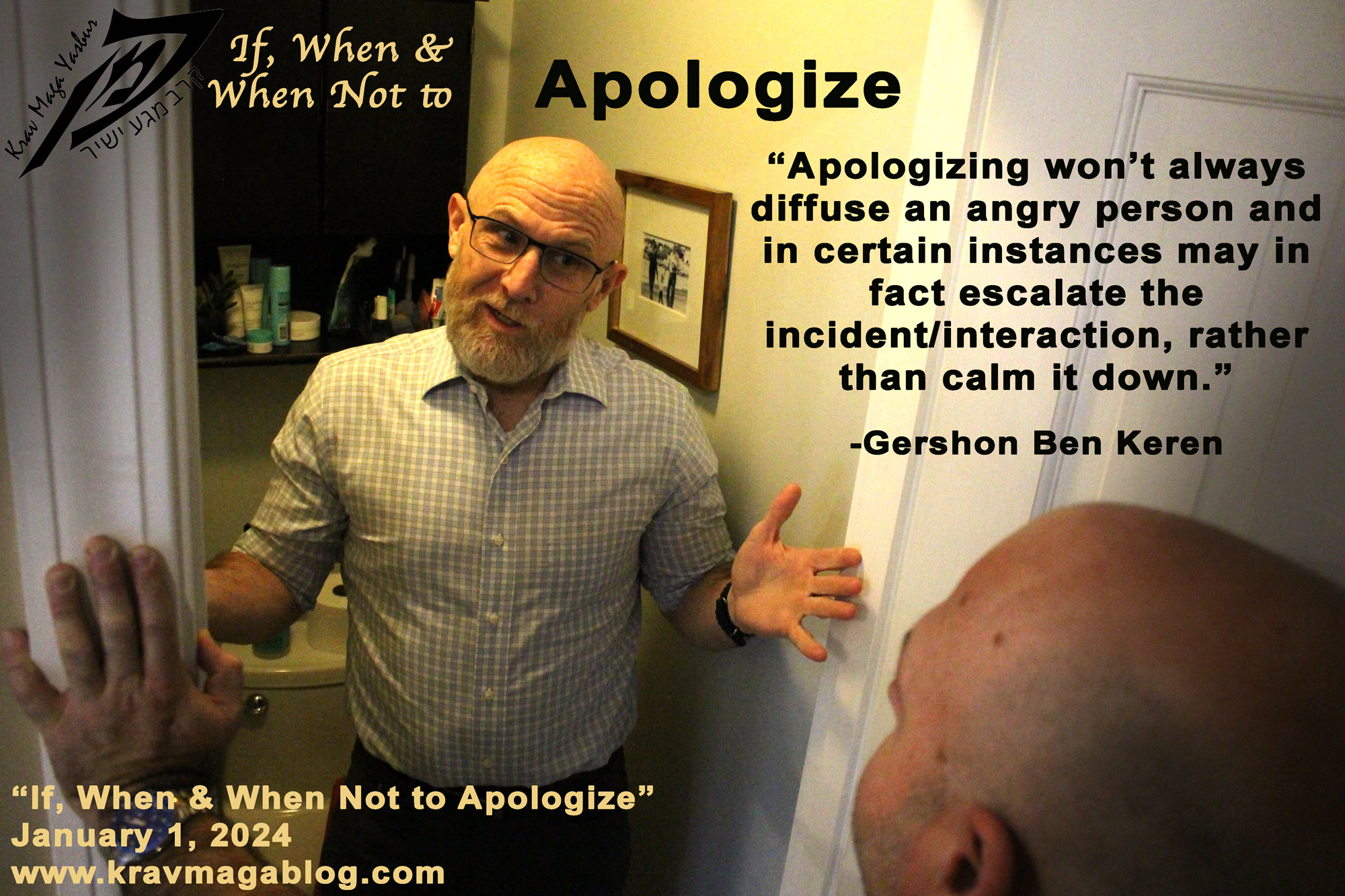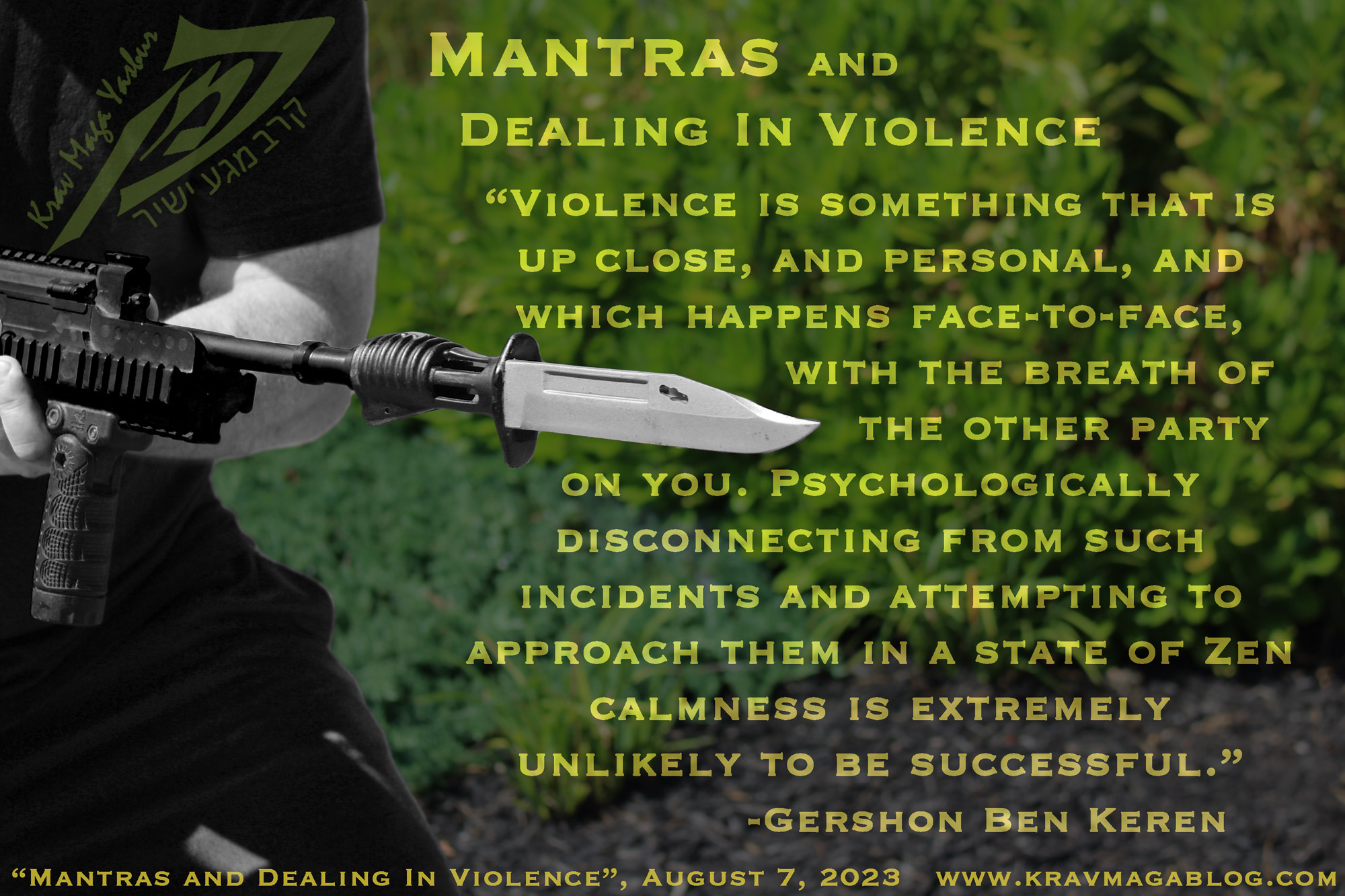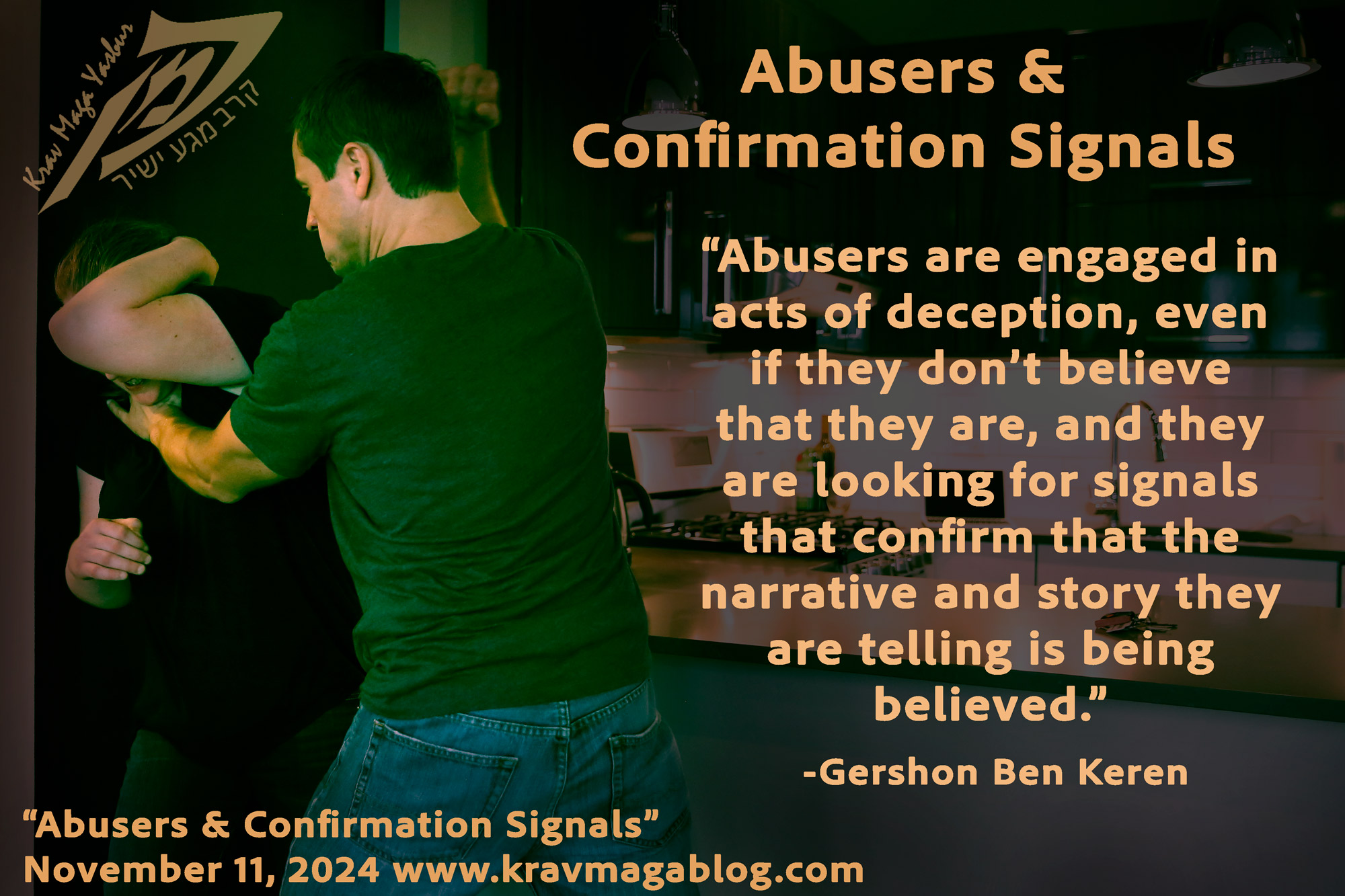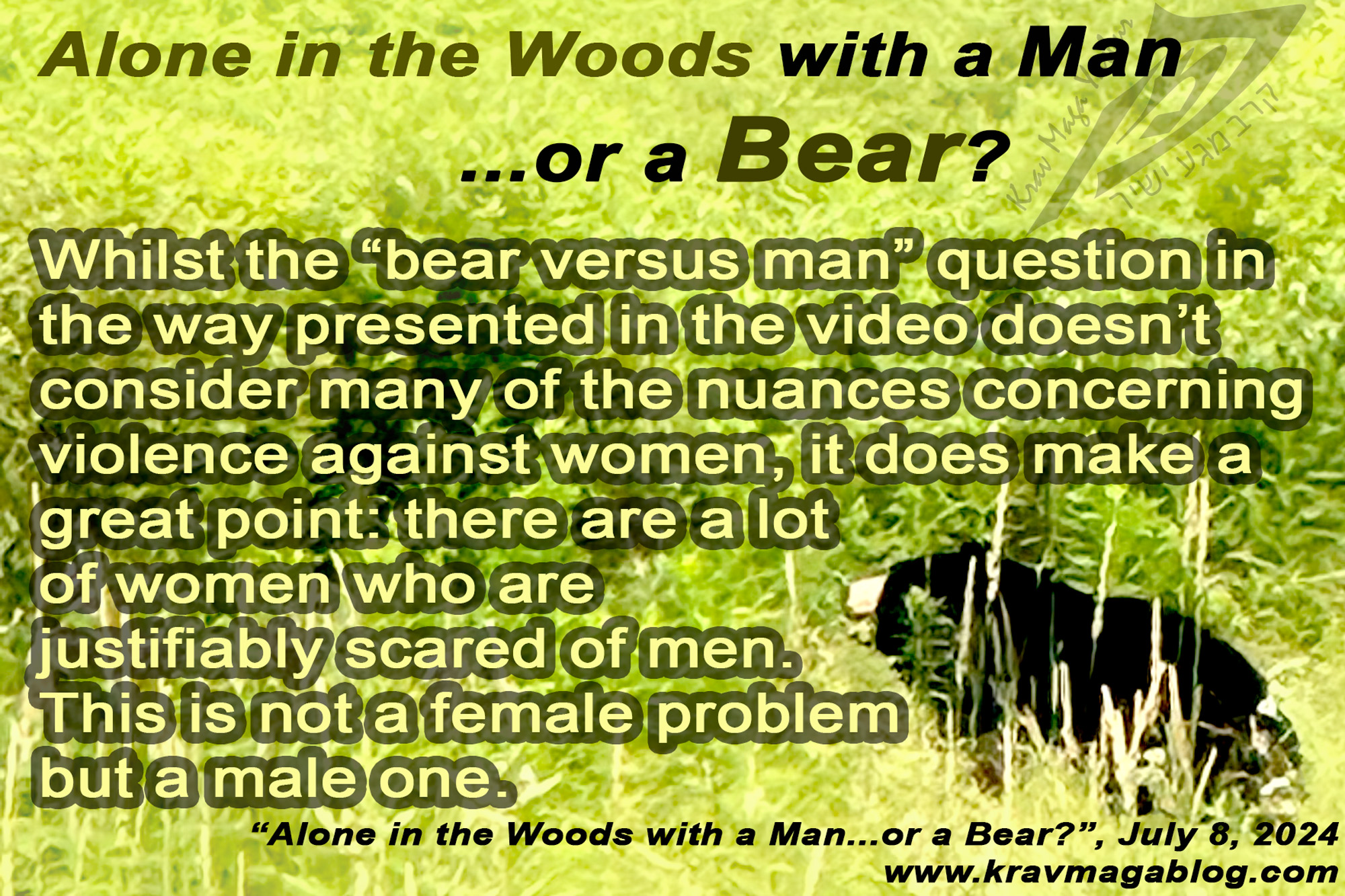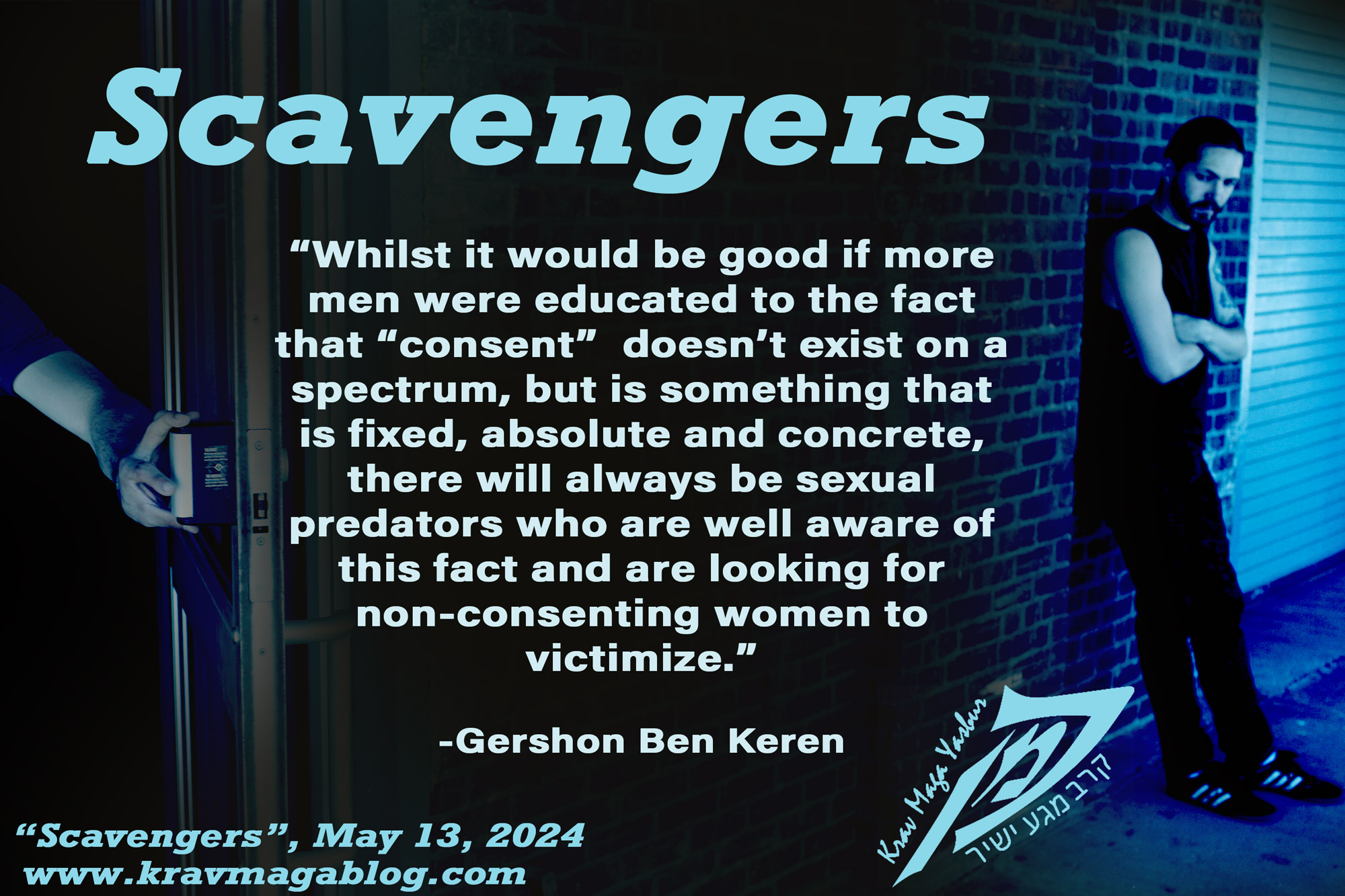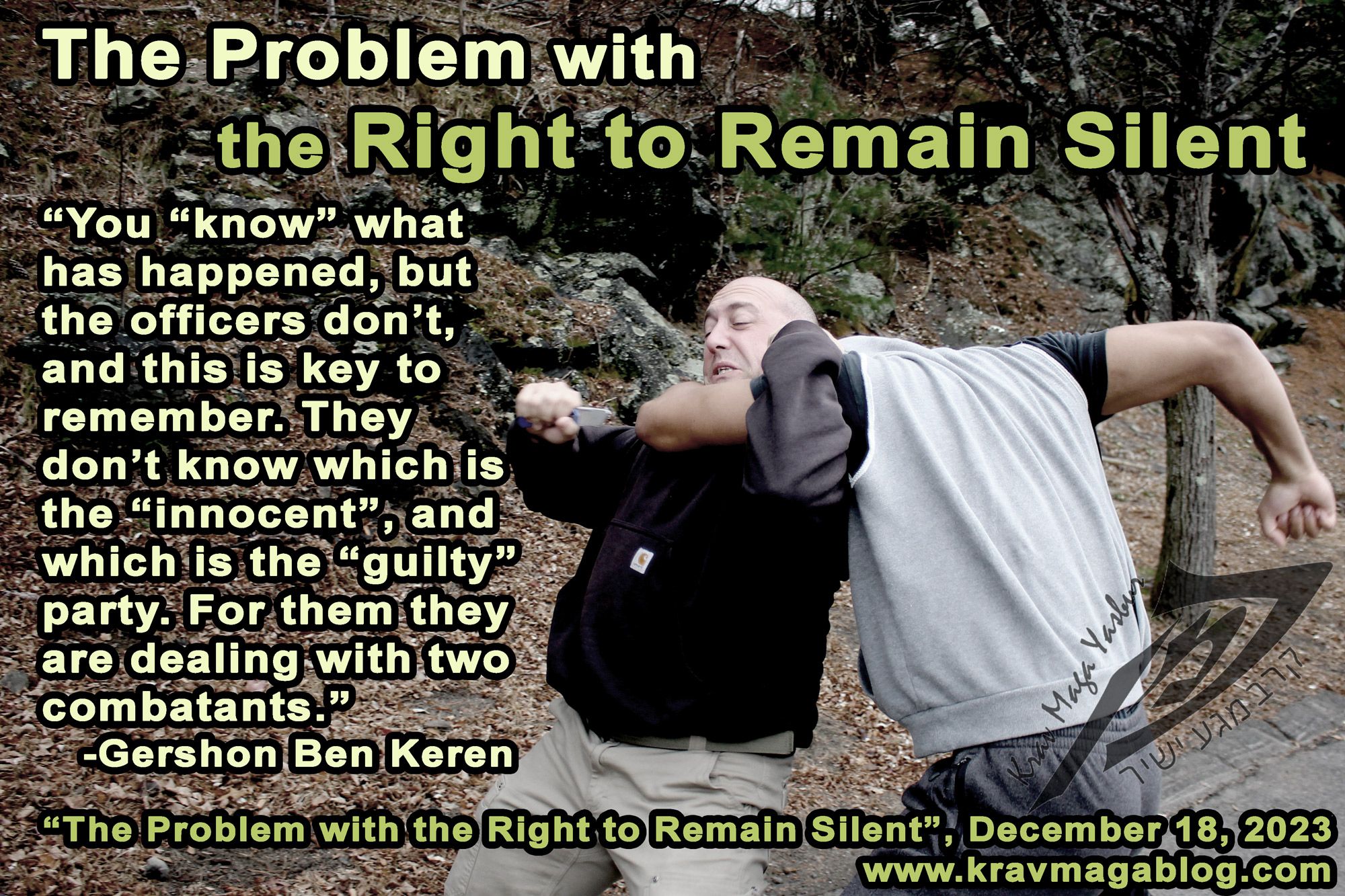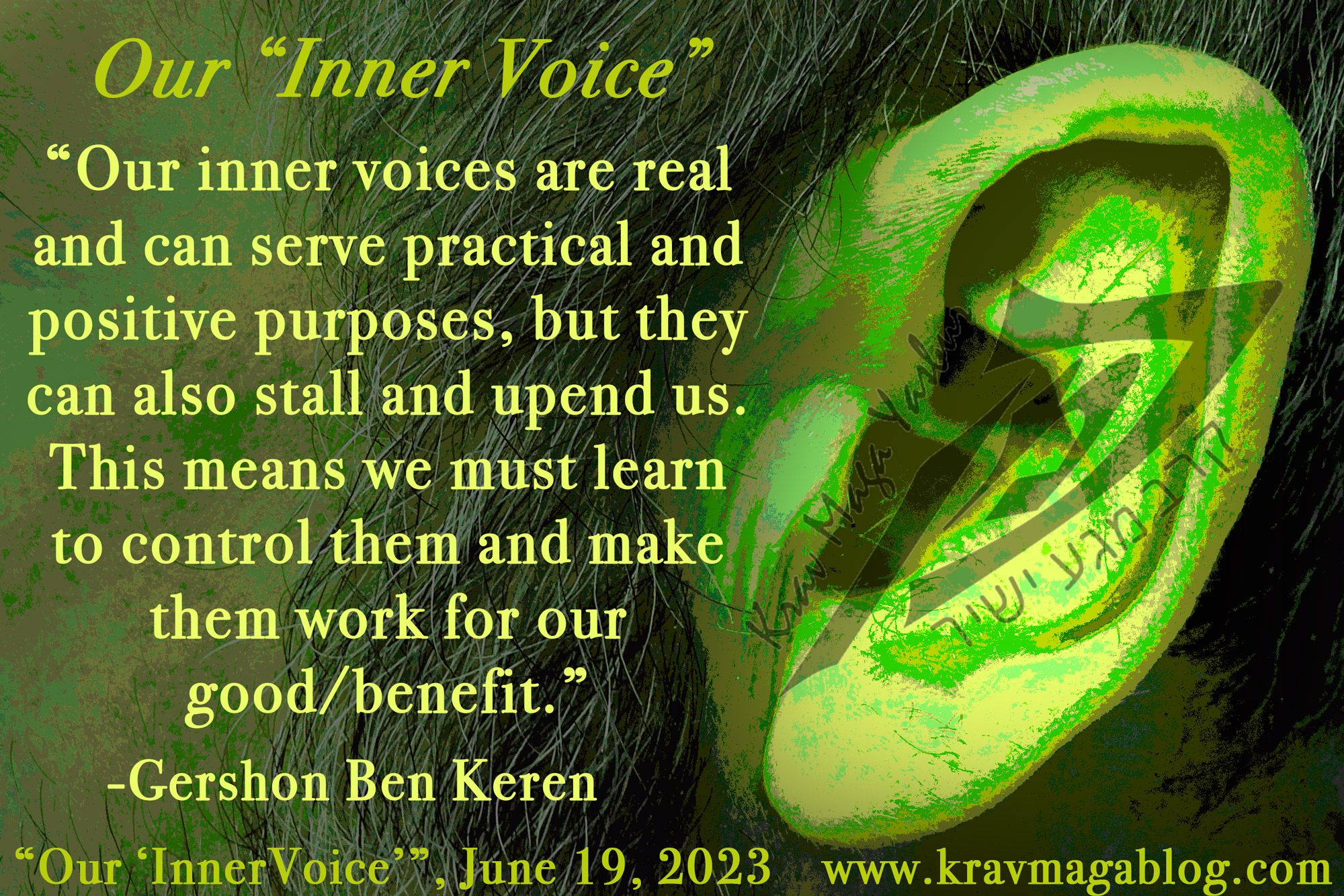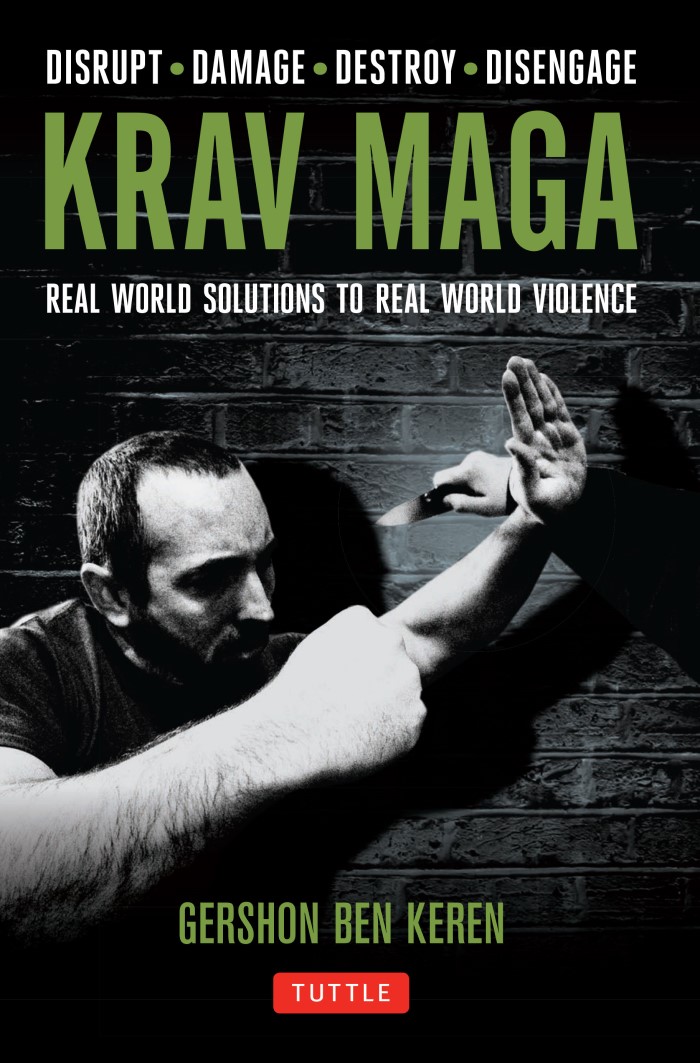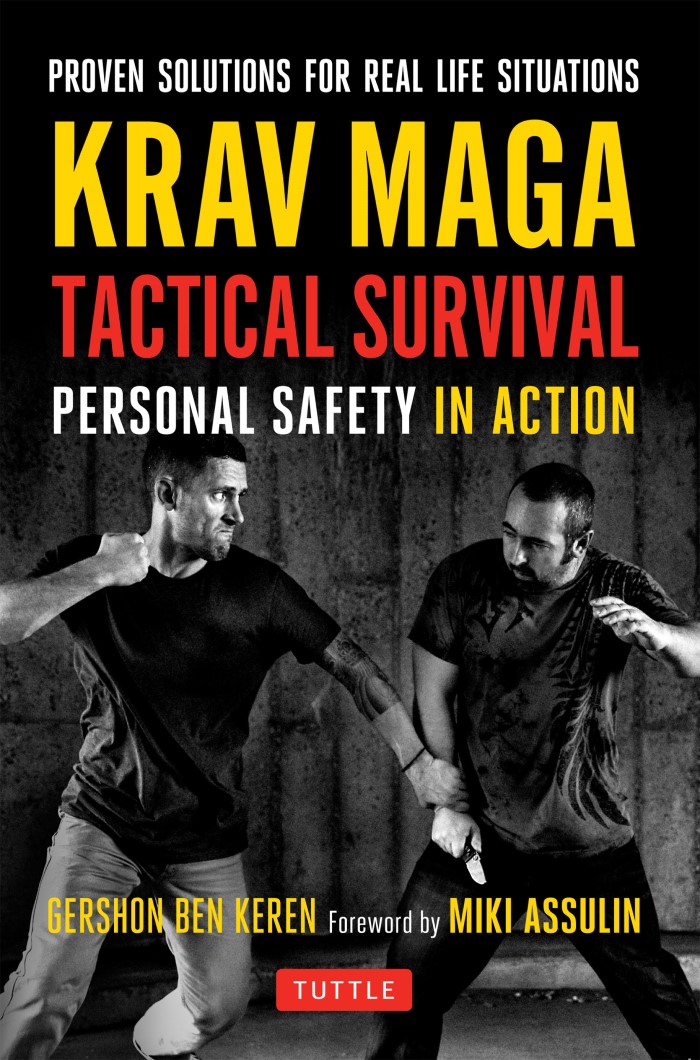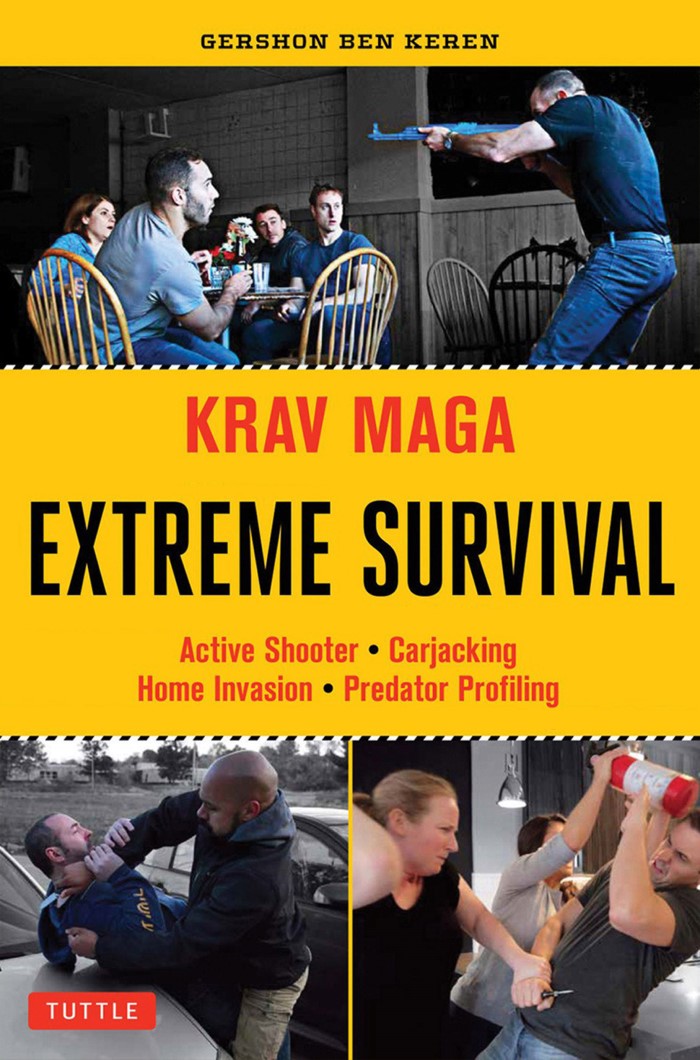Intervening On Another Persons Behalf (Part 2), is an article written by Gershon Ben Keren, a 5th Degree Black Belt in Krav Maga, who teaches Krav Maga in Boston, MA. He has also authored three Amazon best-Selling Books on Krav Maga.
Most of us, when we see an injustice, want to speak out or do something about it. For practicing martial artists and self-defense practitioners, when we see or hear about somebody being bullied, attacked or assaulted, we want to intervene – or at the least wish we could. I have spent a good number of years working bar/pub security, where I’ve had to intervene in violent altercations, where the violence/aggression was primarily directed at others, rather than myself. For those who believe they would/should defend others who are being assaulted, I would like to share some of my thoughts and experiences, not to dissuade you from acting, but to give you an idea of the consequences/results of your actions so that you are better prepared if you do decide to intervene.
Real-life violence has no definite or prescribed outcomes; and a situation you intervene in may not go as you expect it to. I was once approached by somebody who wanted to start organizing aid work in a certain African state, and wanted to involve me in training those who’d be working for his organization. At the time, as it is now, there was no American embassy in the country, and only one or two military complexes stationed there, purely to have a presence, rather than exert influence. Within the first few minutes of the meeting it was clear that despite having the financial means to put his plans into action, he had little clue about the environment he and his organization would be working in, and the dangers that they’d face. More importantly, he didn’t understand how his work and his mere presence in the region could increase the danger to those he was trying to help. I was/am no expert in that particular country, however I’ve worked with several people who knew the region, and anyone or community receiving aid from an external organization was punished for doing so. This individual had very genuine and noble aims, however they weren’t able to see how they might make a bad situation worse, rather than better. This is a hard lesson for us to learn and accept: when we try to help others, we may in fact make things worse. I would add, that this doesn’t mean we always shouldn’t - just that we should expect and prepare for the worst. You may intervene in a mugging to protect somebody who is receiving a beating as they resist, only to have the mugger who is now outnumbered, feel threatened and see the need to pull a firearm to “defend” themselves, etc. You should also assume that others will come to your assailant’s assistance, rather than your own i.e. they’re not acting alone. Your intervention could escalate and make the situation worse, and you need to accept this potential outcome and be ready (and able) to deal with it. I’m not trying to put a headful of doubts into anyone’s mind, however it is important to recognize what can happen as a result of your actions and be prepared for it.
The victim may not want or be grateful for your help. I have intervened on the behalf of many people who were receiving a beating, and not received the thanks that I thought I deserved. This was especially true when I would break up a violent confrontation where a man was beating up a woman, who turned out to be their partner or girlfriend. As soon as I pulled the attacker off her, I became the common enemy – she was also well aware that she’d later be blamed for me and my colleagues making her partner look weak, insignificant and unable to handle himself, etc. - all common conditions that challenge the male ego. Although this intervention might have saved her from a beating now, it may have set her up for a much greater beating later. I’ve had more women turn on me than thanked me by a large percentage. When I was younger, this used to offend me, now I get it. There are five situational factors concerning violence, and the two most important ones are: relationship, and location. Oftentimes we look at an assault and conclude that this was an assault on a train, this was an assault in a park, this was an assault on a street, etc. We often forget to ask, if this was an assault by a stranger, an assault by a family member, an assault by a friend, a colleague, etc. It is simplistic to assume that all assaults are committed by strangers, and that there are no long-term consequences for the victim when you intervene. Don’t let this deter you from involving yourself, but be aware of it. Intervention rarely comes with thanks.
Do you know how to protect others? Intervention isn’t simply about you defending yourself from an aggressor, it’s about defending someone else. What you may have learned in a self-defense class, may not be easily transferred to defending somebody else. Be honest with yourself: would you know how to protect somebody else, rather than simply engaging their aggressor in a fight? Again, I’m not trying to dissuade anyone from intervening in a fight that they see as unjust and unfair, however if an individual is serious about being able to do this, they should look for/seek the appropriate training, rather than just assume that what they know to defend themselves is applicable/transferable to protecting others. Do you know how to effectively stop somebody from hitting another person? Do you know how to move somebody out of danger, and move between them and the aggressor? If you step in to protect somebody, they’re not likely to come to your assistance, so don’t think that you’re going to be involved in a two-on-one situation, or that the odds will be in your favor; you may in fact end up entangled with one person, as you fight off another – have you trained for this, or like this? Have you even thought about or visualized what intervening may look like?
One of the big and essential questions that often gets left out of self-defense training is “when?”; when do you intervene? Do you intervene when a mugger demands money from somebody else? Do you intervene when a mentally ill person starts shouting at a fellow passenger on a train? It is easy to imagine a “clear-cut” situation, where an older man or woman, is being beaten by a younger one, etc., but in reality, things are often not clear-cut. Often in scenario-based training, I will set up a scene where a man is pinning down a girl, whilst her friends are shouting for him to let her go, and leave her alone. Few people stop to finds out what is happening, and immediately jump in to pull the guy off her. When this happens, she stabs the man who she was wrestling with, and runs off with her friends. The back story was that the man was a law-enforcement officer trying to apprehend a criminal. Things may seem very clear to you, however you may not be in possession of all the facts. Situations that appear obvious may not be. I once witnessed a dispute between two homeless men, where one was fighting the other to get some stuff back that the other had stolen from him – depending on when you came in on the scene, it would have looked like the man trying to get his stuff back was a mugger. This raises another question: would you intervene on behalf of a homeless person who was being victimized in the same way as a fellow commuter on a train? This is important, if you decide to wear a safety pin, to identify yourself as someone who will stand up for somebody’s rights if they are abused/attacked/victimized etc. Choosing to wear a safety pin makes the statement that you will stand up for anyone who is the target of a bigoted attack/assault, not just certain groups. It is also more than a statement, it is an assertion that you will act on another person’s behalf.
Many people will see intervention as a heroic action, where they make a stand that will be welcomed and appreciated by both the victim and any bystanders present. This may be the case, but don’t expect it. Instead, plan and prepare for the worst - and everything in between. It may be worth testing the support of those around you before intervening – it may be that they have more information concerning the incident that could be useful to you e.g. they might know the victim, the aggressor, the relationship between them, and what the motive is behind the aggression. If you can arm yourself with information before you intervene, you may increase your success rate. I’ve initially broken up fights, and caused hesitation in assaults, by shouting out the names of the two combatants – familiarity from a different voice can be used to slow things down. There are no golden bullets, no guarantees, and no defined outcomes when you intervene, however there are things that your conscience will not allow you to turn a blind eye to, and force you to get involved in; plan and be prepared.
0 COMMENTS